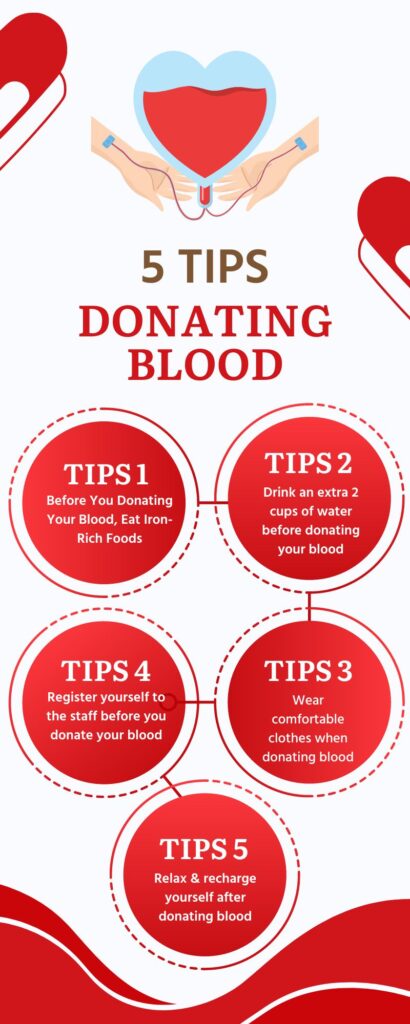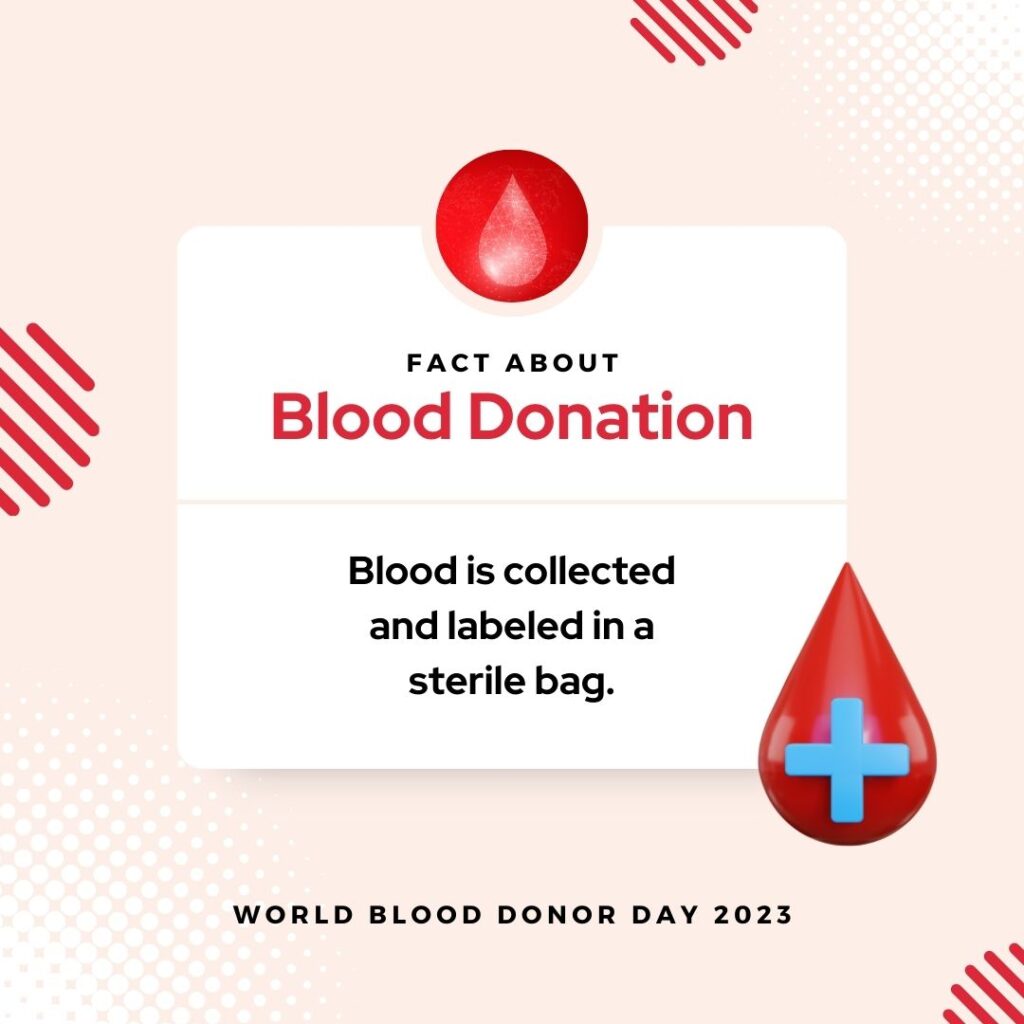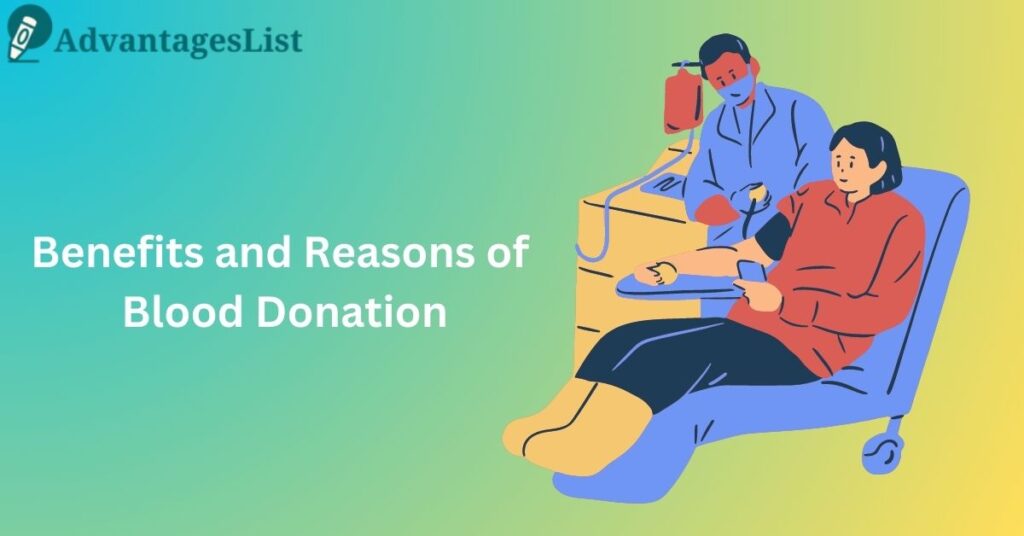The benefits of blood donation include a lower risk of heart attack, a lower risk of cancer, healthy liver, improved mental health, and a lot of other benefits to humanity.
As reported by the American Red Cross, someone in the United States needs a blood transfusion every two seconds. Helping those who have been injured in accidents, fighting blood diseases, and receiving cancer treatment are just a few of the reasons and advantages of blood donation.
Up to three people can benefit from a single blood donation. But what advantages can it provide to the donor? That aspect of blood donation is not always discussed.
There are multiple health benefits to donating blood, though they are less noticeable. The donor can also benefit from this kind of decision by leading a healthier lifestyle.
Why Blood Donation is Important?
Blood donation is an essential aspect of healthcare, as it saves millions of lives every year. Here are some reasons blood donation is important:
- It Saves lives in critical situations
- It fulfills the Shortage of blood supply
- A variety of medical procedures depend on blood donations
- There is no No substitute for blood:
- It helps donor maintain a healthy balance of iron in the body
20 Reasons to Donate Blood
According to statistics, at least 25% of us will require blood at some point in our lives. And those over 50 need it the most. So instead of waiting until you need something, why not give back now? Let’s take a look at the most important reasons for donating blood.
- It helps in the treatment of cancer patients.
- The donor gets all of their blood tests for free.
- The American Red Cross estimates that one donation can possibly save three lives.
- When divided into its subcomponents, one pint of blood donated can potentially save up to four lives.
- The only source of getting blood is blood donations.
- Having healthy blood iron levels is facilitated by blood donation.
- By giving blood, you can increase the body’s production of fresh red blood cells.
- Only 1.2% of the world’s population donates blood, leaving 75% of people as potential recipients.
- You won’t even notice the approximate 500ml donation of blood, which is similar to one bottle of beverage.
- There is no chance of infection because the procedure is quick and safe and disposable, sterile equipment is used for each donor.
- Your donation of blood can extend the life of a child, parent, sibling, or friend for one further day.
- Your life will be longer and healthier if you regularly donate blood.
- Blood donation helps in deriving white blood cells, plasma, platelets, and red blood cells which can be used to save many lives.
- The survival of thousands of people every day depends on receiving donated blood and its components.
- One of the most priceless gifts anyone can give to benefit humanity is the gift of blood for transfusion.
- Although giving blood cannot replace your regular workout, one pint of blood can result in a 650-calorie burn.
- According to a study, men who donate blood at least once annually have an 88% reduced risk of having a heart attack than men who don’t.
- Blood donation is a quick and easy process. It can be completed in 20 minutes or less, including registration and donation.
- If you are one of the less than 38% of people who can donate blood or platelets, think of yourself as one of the special ones.
- When the needle gets into your arm, you might feel uneasiness, but the procedure is generally painless. And the slight pain is worth it when you think about the benefits it offers.
Benefits of Blood Donation
Blood donation has many benefits for both the donor and the donee. Blood donation is a noble act of giving blood to someone in need. It is a selfless act that can save lives and improve the health of the donor. Here are some blood donation benefits.

1. Free Health Checkup
In most countries, every time you donate, you will get a free health checkup that includes a cholesterol and iron count screening as well as measurements of your blood pressure, pulse, and temperature. Some of the people who volunteer to donate blood have had their lives saved by these healthcare tests.
2. Better Heart Health
Regular blood donations may improve blood flow and reduce arterial blockages. People who donate more than two times a year can actually significantly lower their risk of suffering a heart attack or stroke.
3. Reduces the Risk of Cancer
According to a study in the Journal of the National Cancer Institute, giving blood may cause people to have less iron in their bodies.
Iron is necessary for life, but too much iron can increase your risk of developing cancer. According to the study, people who regularly donate blood have lower risks of developing stomach, colon, liver, lung, and lung cancer.
It’s important to remember that not everyone will be affected by these findings. Patients should consult a doctor about blood donation and their iron levels.
4. Helps Cancer Patients
One of the most typical groups of people who receive blood transfusions in cancer patients. However, donations are also regularly used by young and old burn patients, accident victims, transplant recipients, and surgery patients.
5. Improves Mental Health
You may feel proud of yourself because you are saving lives by donating blood. Having the knowledge that you are helping others can help you feel better emotionally.
This encourages a sense of community and belonging while lowering stress levels and unfavorable thoughts and emotions. Knowing that you are changing the world helps your psychological state.
6. Becoming a Part of the Community
Many donation centers take great pride in their localities. People who donate frequently can develop friendships with the staff at the center and their fellow donors, who are all dedicated to saving lives.
The community is also expanded by many centers’ referral programs, which allow participants to ask friends and family to donate.
7. Detects High Blood Pressure
Your blood pressure is a key indicator of how likely you are to experience a heart attack or stroke. Since high blood pressure has no symptoms, it frequently goes unnoticed. Having your blood pressure checked while donating blood can save your life.
8. Check Your Hemoglobin Levels
When your red blood cell (RBC that delivers oxygen to the body tissues) count is too low, anemia develops. A blood test will reveal low hemoglobin levels. Your red blood cells contain a protein called hemoglobin, which transports oxygen to your cells.
Because iron is required for the production of hemoglobin, we frequently referred it anemia to as having low iron.
Through a blood donation, your hemoglobin level can be checked to see if it is high or low. Visit your doctor as soon as possible if either condition exists. Normal RBC ranges are:
Male: 4.7 to 6.1 million cells per microliter (cells/mcL)
Female: 4.2 to 5.4 million cells/mcL
9. Balance Iron in Your Blood
Blood that contains too much iron can cause the arteries to harden. Your blood’s iron content decreases when you donate blood. After donating, the food you eat will replace the iron, but consistent donations can maintain a healthy level of iron.
The normal iron level is 70 to 175 mcg/DL for men. 50 to 170 mcg/dL for women. 50 to 120 mcg/dL for children.

10. Increases the Production of Blood Cells
The body works to produce more blood after donating blood. It created new blood cells, as a result, helps maintain the body’s health and effectiveness.
11. Help in Losing Weight
You can also burn a lot of calories through blood donation. Blood donation reportedly burns 650 calories for the donor, according to the University of California, San Diego.
Blood donors who regularly donate can lose more weight, but this should not be your primary strategy for slimming down.
12. Prevents Hemochromatosis
A condition known as hemochromatosis occurs when the body absorbs excessive amounts of iron, leading to an iron overload. Due to its overlap with other prevalent diseases, hemochromatosis is frequently undiagnosed in people.
Anemia, alcoholism, and other conditions can contribute to hemochromatosis, which can also be inherited. Because the disposal of red blood cells reduces the storage of iron, blood donation can lower the risk of hemochromatosis.
13. You Can Save Lives
Your daily activities don’t often involve saving lives. But if you donate blood on a regular basis, you have the chance to save many lives. A blood donation can potentially save three lives.
Donating blood and platelets, which cannot be produced synthetically, is essential for helping those who are troubled by various diseases. In the United States, someone needs blood every two seconds. Additionally, you can keep blood on hand in case of emergency.
14. Financial Help
Many blood donation facilities give donors financial incentives. Plasma, blood, and serum donors can expect to receive about $50 in compensation.
If you have specific medical conditions, that number may increase significantly. Some facilities pay plasma donors with Lyme disease up to $500 per week.
15. Feel Blessed
If you are one of the less than 38% of people who can donate blood or platelets, think of yourself as one of the few lucky ones. We frequently take for granted that there will be blood when we need it, but it cannot produce blood.
It can only originate from someone who makes a donation. In the United States, 30,000 units of blood are used daily, and someone requires a blood transfusion every two seconds. Regular blood shortages may cause a patient’s treatment to be delayed.
16. Learn About Your Blood Type
Donating blood is a great way to determine your blood type if you have ever been unsure. It will also reveal your cholesterol levels after donation.
You receive a complimentary mini-physical before each donation. Your temperature, hemoglobin levels, blood pressure, and pulse are all checked by a medical professional.
17. Help Mankind
Every seventh person who enters a hospital will require blood transfusions. Hospitals use close to 6,000 units of plasma daily and over 6,000 units of platelets.
This shows that more than 10,000 donors are required every day to meet patient demand, yet only about 3% of Americans give blood annually. You most likely meet the requirements if you are in good physical condition, weigh at least 110 pounds, and are at least 16 years old.
18. You may need Blood Donation
About 25%, of people, are predicted to require blood in their lives. You might one day be as appreciative of the donation as someone else is right now, even though there is no direct link between donating blood and receiving it.
19. Fight Covid-19
According to the FDA (Food and Drug Administration), individuals who have recovered from COVID-19 can help those who are battling the illness by donating blood plasma.
Antibodies to the infection are present in their plasma. We give this plasma to someone else, it can help their body in battling the virus.
20. Beneficial for Both (Donor and Recipient)
Blood donation is quite beneficial for donors and recipients. A recipient gets the required amount of blood in their body which can even save one’s life. A donor can regenerate that amount of blood in a few hours and will get plenty of physical and mental benefits through it.
Disadvantages of Donating Blood
- Blood donation is a painful procedure. When the needle goes into your arm, you might feel pain.
- Blood donation can take a lot of time: From the moment you get there until the time you leave, it might take an hour.
- It’s possible that you will feel physically weak after giving blood, particularly in the arm where the needle was inserted.
- You may feel dizzy, or lightheaded after donating blood due to weakness.
- It can cause continuous bleeding after blood donation due to various reasons.
FAQs
How often should I donate blood?
The annual blood donation limit for whole blood donors is three to four times. So, you should at least donate three times in a single year.
How many calories do you burn giving blood?
You can lose up to 650 calories for every pint of blood donated, according to University of California, San Diego researchers.
Can I donate period blood?
It contaminated blood from a period with many problems. It is not the same blood that is flowing through your veins. That’s why you cannot donate your period blood.
Does donating blood lower cholesterol?
Yes, some researchers have discovered that routine blood donation can lower triglyceride and cholesterol levels.
Does giving blood detox your body?
Although the body can detoxify on its own naturally (with the help of your liver), giving blood may enhance your body’s capacity to do so.
Final Words
There is no boundary to the benefits of blood donation as a single donation can save up to three human lives. As there is no substitute for human blood, many patients suffering from cancer and blood-related diseases look up to blood donors for survival in their life.
A huge number of accidents happen daily after which blood is required to save the lives of injured ones. Thus, every healthy human being should donate his/her blood at least three times a year to help others and to stay healthy in their life.

